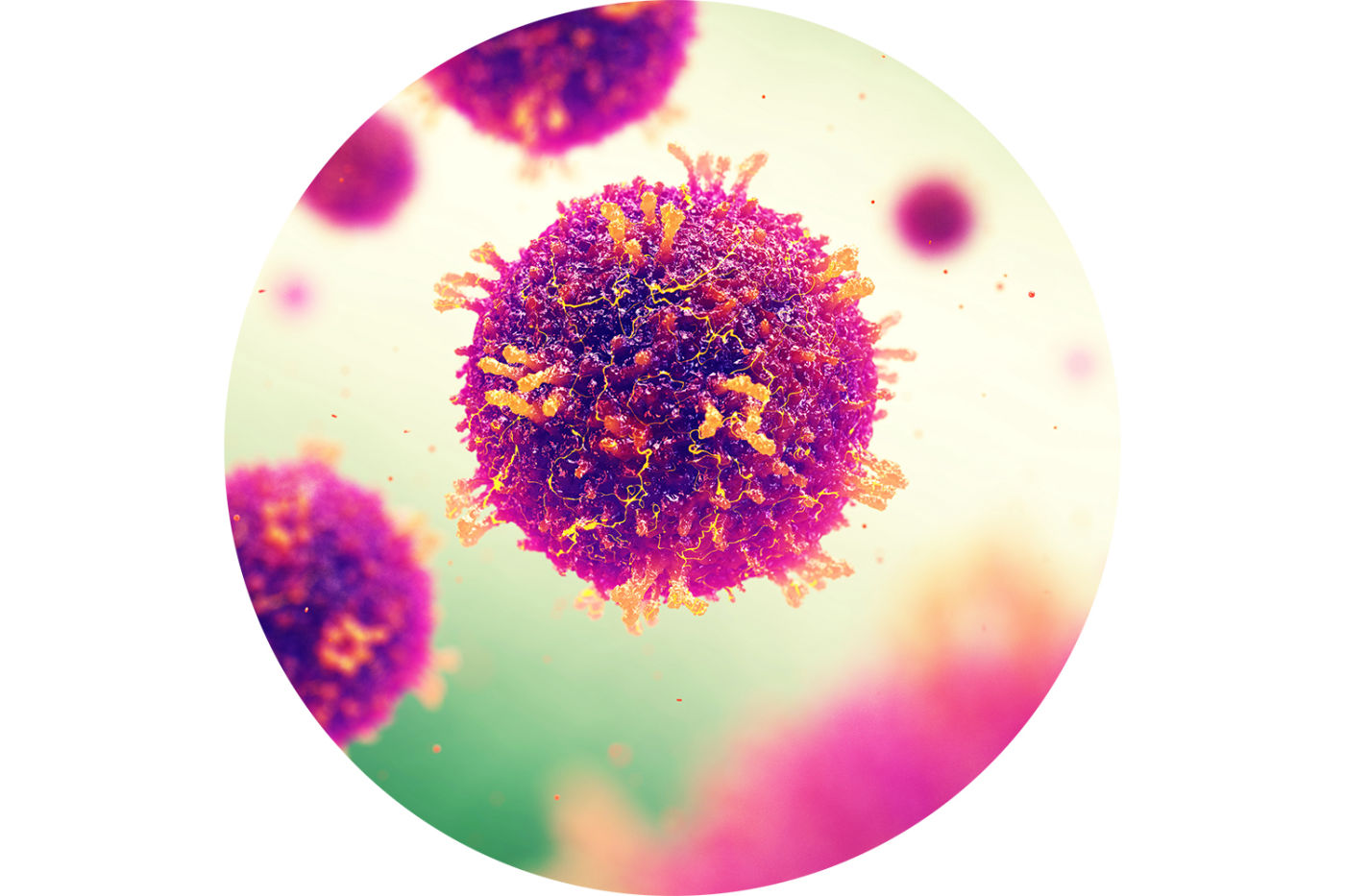
(RIF. RNA 02)
It is part of the Paramyxoviridae family, which also includes viruses from other diseases such as flu-like syndromes and mumps. It spreads very easily, by air, and gives a definitive immunization.
Measles is a very contagious disease that often affects children between 1 and 3 years old, so it is called “childood”, such as rubella, chickenpox, whooping cough and mumps. It is transmitted only in humans. The sick are isolated during the period of infection. Complications are relatively rare, but measles is still responsible for between 30 and 100 deaths per 100,000 people affected. The complications are mainly due to bacterial superinfections: otitis media, laryngitis, diarrhea, pneumonia or encephalitis (inflammation of the brain). They are most often found in infants, malnourished children and immunocompromised people. Usually the diagnosis is made only by clinical observation. Eventually, specific antibodies to the measles virus can be found in the serum, after 3 or 4 days after the rash.
Once contracted, measles gives a theoretically definitive immunization, so you will no longer get sick for the duration of your life. Measles is spread all over the world. It is one of the most frequent eruptive fevers, although it is much less common since booster vaccination is in use. Measles, sometimes underestimated disease, can sometimes have serious consequences but can be prevented through a vaccine. The measles vaccine belongs to live attenuated vaccines. The vaccine exists in the form of a vaccine complex against measles, mumps and rubella.